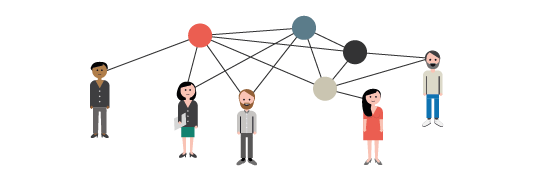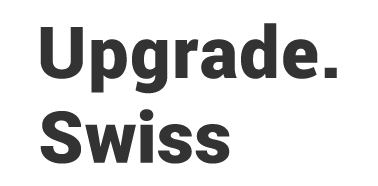
Which organizational model do we apply to support our strategy and the changing work models of our people?
What should our future culture of cooperation and working style be?
How can the existing organization meet both future requirements and the growing dynamics and complexity in the environment? Which new, better, smarter ways of working, processes, organisational models and concepts can help to further improve the quality of results, speed of delivery and efficiency? How can you collaborate and work more easily, pragmatically and flexibly – across departmental, departmental and organizational boundaries? Many organizations and companies are currently dealing with these questions – the growing dynamics and constant change are forcing new thinking and action. This is beneficial, because the repertoire and experience in modern and innovative organizational approaches matures. Working methods and processes are today being simplified, streamlined, “cleared out”, automated and “agile”. Employees and teams are more involved and take responsibility, make decentral decisions and control much more themselves. The culture of cooperation is experiencing a better quality of performance through new formats, more lively social interactions and new artifacts and rituals. We call this a vibrant and agile “social operating system”. It is about the concrete question of who can communicate, meet, collaborate, in what pace, with what expectations of results – specifically: WHAT WHO should contribute WHEN. In addition, there is a need for a design around the HOW. What is needed are lively and efficient formats and methods to get the most out of commitment, to create energetic and, for those involved, “pleasurably productive” experiences – also and especially in an increasingly larger and, in terms of professionalism and roles, more complex organisation.
Our organizational consulting is not about “demolition and complete renewal”. Rather, it is a sensitive approach to the foundations of the organisation and the existing culture, the skills and ambitions of the people and their energies. We explore the most effective levers for sustainable improvement and cahnge. We look less at the deficits and much more at the potentials. We place trust in people. We look for simplicity as an answer to complex challenges. We start with small steps and a lot of trial and error instead of big designs (which are often not implemented in the end). In essence, we believe in “LEARNING” of people and organizations. Every intervention in organizations has only an impact if people are building new skills and capabilities in organisation, processes, cooperation, communication etc. Our experience shows that managers and employees gain new strength and thrust with this paradigm of learning. Organizational development can become a permanent and living state – and a real competitive advantage.
Organizational Design
Analyzing organizations, recognizing and naming strengths and weaknesses in structures, procedures, working methods, culture; identifying design options and innovative organizational models; supporting and leading organizational design and development processes. We develop modern and innovative organisational models and help with their implementation.
Process Management
Examine processes, analyse weaknesses, redesign/reengineering; agile processes; process learning and competence development; monitoring/performance management. We support the development of effective and efficient process management and the learning process to real “process skills”.
The Social Operating System
Working methods, communication patterns; analysing cooperation structures; identifying weak points; design formats, routines, rituals for effective communication; communication habits; learning processes for cooperation management We support the development of lively and effective forms and processes of communication as well as new ways of cooperation.
Agile Transformation
Preparing the field for implementing Agile; architecture for agile transformations; designing Agile framework and organization model (e.g. Kanban, Scrum, SAFe etc.); training Agile Thinking and Habits; culture transformation journey.






